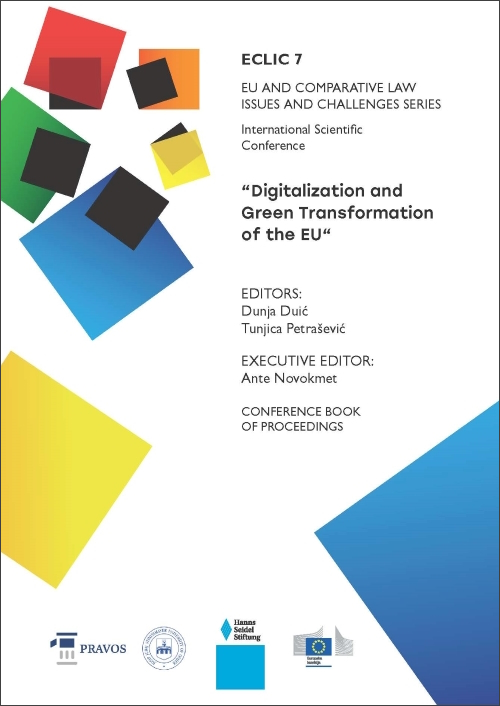EXPECTED CONTRIBUTIONS OF THE EUROPEAN CORPORATE SUSTAINABILITY REPORTING DIRECTIVE (CSRD) TO THE SUSTAINABLE DEVELOPMENT OF THE EUROPEAN UNION
DOI:
https://doi.org/10.25234/eclic/27463Abstract
In January 2023, the European Corporate Sustainability Reporting Directive (CSRD) came into power, and its application from the fiscal year 2024 becomes mandatory for all large European companies with over 500 employees, as well as for medium and small companies, except for micro-enterprises, whose securities are listed for trading on a regulated market in the European Union. The directive also covers non-European trading companies that generate more than EUR 150 million in net income per year in the Union and have at least one daughter company or subsidiary that exceeds this income threshold. The directive adapts the deadlines, areas and standards of application of the new sustainability reporting rules to the capacities and resources of individual categories of companies. Businesses covered by the directive will have to submit publicly available and detailed non-financial reports on a number of aspects of sustainability in their operations, as well as on the impact of external sustainability factors on current operations, market position and development of companies. The directive represents a strengthening of the existing European rules for the creation and publication of sustainability reports introduced by the Non-Financial Reporting Directive (NFRD) from 2014, which are no longer adequate for the realization of the goals of the European Green Plan and the successful transition of the EU to a sustainable economy and society. This paper analyzes the historical and legal context of the creation of the Directive, goals and the scope of the Directive’s application, the indicators of reporting by companies with regard to the economic, social and ecological dimensions of sustainability covering also limitations bonded with theoretical and empirical circular economy perspective and the expected benefits of standardized reporting on aspects of sustainability of important stakeholders of the society. Besides, the possible burdens and costs are going to be presented, ocuuring when preparing sustainability reports and during practical application of the Directive. The purpose of the paper is to point out possible contributions of the Directive to strengthening the responsibility of companies for an accelerated and easier transition to a sustainable economy and society as a key development goal of the Union, and the potential positive impacts of a broader reduction of the negative environmental and social footprint on the sustainable operations of companies and the economy as a whole. Historical, legal normative and political economic methods are most often used in the analysis of the provisions and effects of the new legislative solution regarding the quantification of the effects of business operations on the sustainability of the European environment and society and the feedback effects of progress in wider sustainability on the operations and market position of businesses.
Downloads
Published
How to Cite
Issue
Section
License
Copyright (c) 2023 Katarina Marošević, Rajko Odobaša

This work is licensed under a Creative Commons Attribution-NonCommercial 4.0 International License.
Authors retain the copyright on the papers published in the Journal, but grant the right of first publication to the Journal. Papers accepted for publication or already published in ECLIC of the Faculty of Law in Osijek may be published by the author(s) in other publications only with proper notice of its previous publication in ECLIC.


